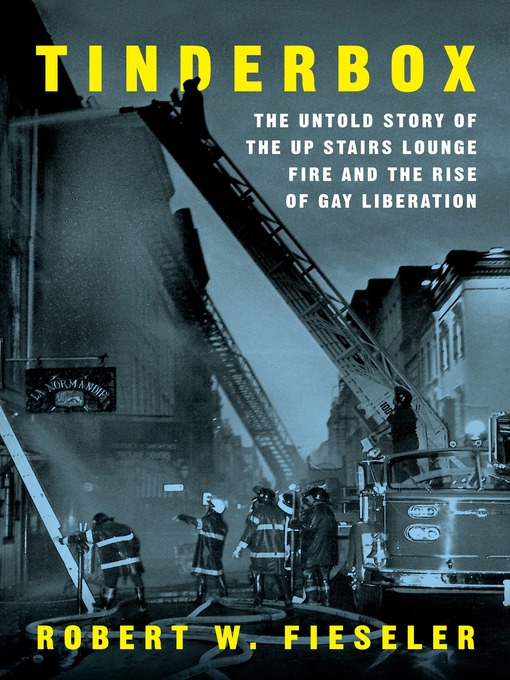Winner • Edgar Award (Best Fact Crime)
Winner • Lambda Literary's Judith A. Markowitz Award for Emerging LGBTQ Writers
Finalist • Housatonic Book Award (Nonfiction)
Finalist • Randy Shilts Award for Gay Nonfiction
A Stonewall Honor Book in Nonfiction (American Library Association)
Best Book of the Year: Kirkus Reviews, Library Journal and Shelf Awareness
An essential work of American civil rights history, Tinderbox mesmerizingly reconstructs the 1973 fire that devastated New Orleans' subterranean gay community.
Buried for decades, the Up Stairs Lounge tragedy has only recently emerged as a catalyzing event of the gay liberation movement. In revelatory detail, Robert W. Fieseler chronicles the tragic event that claimed the lives of thirty-one men and one woman on June 24, 1973, at a New Orleans bar, the largest mass murder of gays until 2016. Relying on unprecedented access to survivors and archives, Fieseler creates an indelible portrait of a closeted, blue- collar gay world that flourished before an arsonist ignited an inferno that destroyed an entire community. The aftermath was no less traumatic—families ashamed to claim loved ones, the Catholic Church refusing proper burial rights, the city impervious to the survivors' needs—revealing a world of toxic prejudice that thrived well past Stonewall. Yet the impassioned activism that followed proved essential to the emergence of a fledgling gay movement. Tinderbox restores honor to a forgotten generation of civil-rights martyrs.



